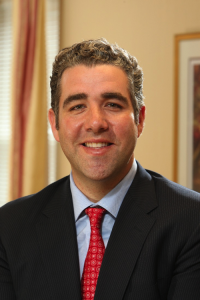 Help Choose Home Podcast: Interview with Steven H. Landers, MD, MPH, President and CEO of the Visiting Nurse Association Health Group, Inc.
Help Choose Home Podcast: Interview with Steven H. Landers, MD, MPH, President and CEO of the Visiting Nurse Association Health Group, Inc.
While there is much uncertainty in the world today, one thing we can count on: we are all getting older. Aging brings about change, but aging doesn’t have to bring about a loss of independence as you evaluate your adult care options.
To help maintain independence as you age, Steven H. Landers, MD, MPH, President and CEO of the Visiting Nurse Association Health Group, Inc., suggests having conversations with family members to outline your wishes – not just about medical treatment, but also about care as you age. If your wish is to age in place, having those conversations helps everyone plan appropriately for the future.
A family physician and geriatrician, Dr. Landers has worked nearly his entire career in the home health industry and is a passionate advocate for care delivered in the home. He sees home care taking a leading role as healthcare in the United States continues to change, citing innovation in infusion treatments, recovery, and palliative care that were at one time all procedures that occurred in clinics and hospitals, and now more and more are moving to being delivered in the comfort of home.
Dr. Landers cites two important steps to take when seniors wish to age in place:
- Plan ahead. Don’t wait until there is a crisis and impulsive decisions must be made during a stressful situation. Determine who will be the senior’s medical advocate or power of attorney. Medicare and Medicaid typically only pay a small amount toward in-home care, so having a conversation about finances is necessary. Consider accessibility around the senior’s house – is a ramp needed? Grab bars in the shower? Additional lighting? Is downsizing appropriate?
- Research. Home health agencies are great resources, often with a broad understanding of the services available in a particular community. AARP offers many helpful tips on caregiving and what to anticipate. The American Academy of Homecare Medicine is also a valuable resource in identifying practitioners who make home visits. A geriatrician can help with information about aging in place and in-home care, and can also provide mediation when there are disagreements about care.
According to Dr. Landers, because people are living longer, it is nearly certain that at some point seniors will either end up with a chronic illness — requiring ongoing medical treatment, or they will have difficulties with activities of daily living — requiring some level of assistance. Aging is a universal part of the human experience, and while there may never be a perfect time to have a conversation about care needs for older adults, it is imperative to make those conversations a priority when they can be thoughtful and intentional, rather than reactive.
Home care is a critical component of today’s healthcare system, and Dr. Landers applauds the hidden angels – the caregivers – who are on the front lines working with older adults who wish to age at home. Looking to the future, as more caregivers are needed, Dr. Landers emphasizes the need to make sure people are intentionally trained for home care so that there is a stronger, better supported home care workforce able to meet the needs of our growing population of seniors.
Listen to the full interview with Dr. Steven H. Landers in the Help Choose Home podcast series to learn more. This episode and others in the series can be found on iTunes or Google.
The Help Choose Home podcast series provides information and resources to help those with a care need learn more about healthcare at home. Podcasts are hosted by Merrily Orsini, president and CEO of corecubed, a marketing firm dedicated exclusively to elder care marketing.
Help Choose Home is a collaborative effort by the National Association for Home Care and Hospice (NAHC), Axxess, and corecubedto educate the public about the many benefits of the in-home care industry, which includes non-medical home care, private duty nursing care, medical home health, hospice, and other in-home health and wellness services.

